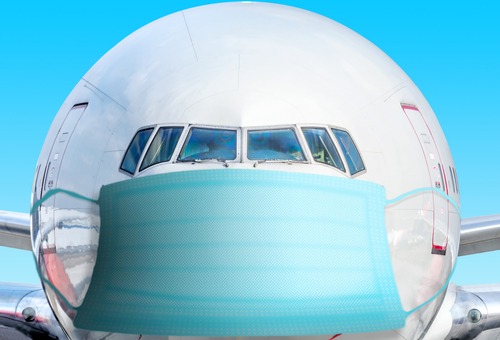
U.S. Reps. Rick Larsen (D-WA) and Don Beyer (D-VA) have reintroduced a bill that would require several federal agencies to come together to develop a national aviation preparedness plan for any future public health emergencies.
Called the National Aviation Preparedness Plan Act, the legislation would direct the U.S. Department of Transportation (DOT) to work with the Department of Health and Humans Services (HHS), the Department of Homeland Security (DHS), and any other relevant federal agencies to develop a national aviation preparedness plan for any future communicable disease outbreaks.
“A national aviation preparedness plan is long overdue. Lessons learned from the ongoing COVID-19 pandemic show the urgent need for a national aviation preparedness plan to ensure the safety of aviation crews, employees, and passengers and restore confidence in air travel,” Larsen said. “This bill will bring federal agencies, frontline aviation workers and other key stakeholders to the table to develop a clear, comprehensive plan of action to tackle future outbreaks.”
If passed, the legislation would require agencies to work with U.S. air carriers, airports, labor unions, and key aviation stakeholders to plan on how to improve coordination between agencies, industries, and nations for screening, testing, quarantining, and contact-tracing, as well as how to ensure frontline employees are equipped with PPE and are appropriately considered for access to vaccines. The plan would also identify opportunities to develop and deploy emerging technologies to reduce communicable disease transmission.
“Throughout the pandemic the threat of disease spread via air travel has posed an ever-changing problem for policymakers. Our legislation would require the government to be better prepared to face this issue in the future,” said Rep. Beyer. “Watchdogs within the U.S. Government and the United Nations have both identified the necessity of a coordinated national strategy to prevent spread of disease by air travel as a crucial element in national and international pandemic response. Our bill would make this a priority and require input from agencies across the government, as well as relevant stakeholders in the aviation sector. Had a national aviation preparedness plan been in place at the outset of the COVID-19 pandemic, the response might have been stronger, quicker. We need to learn from those mistakes to do better in the future.”
Once developed, the plan would be evaluated by the Government Accountability Office (GAO) to ensure it meets the nation’s obligations under international conventions and treaties and how it prepares the industry to respond to future public health emergencies.